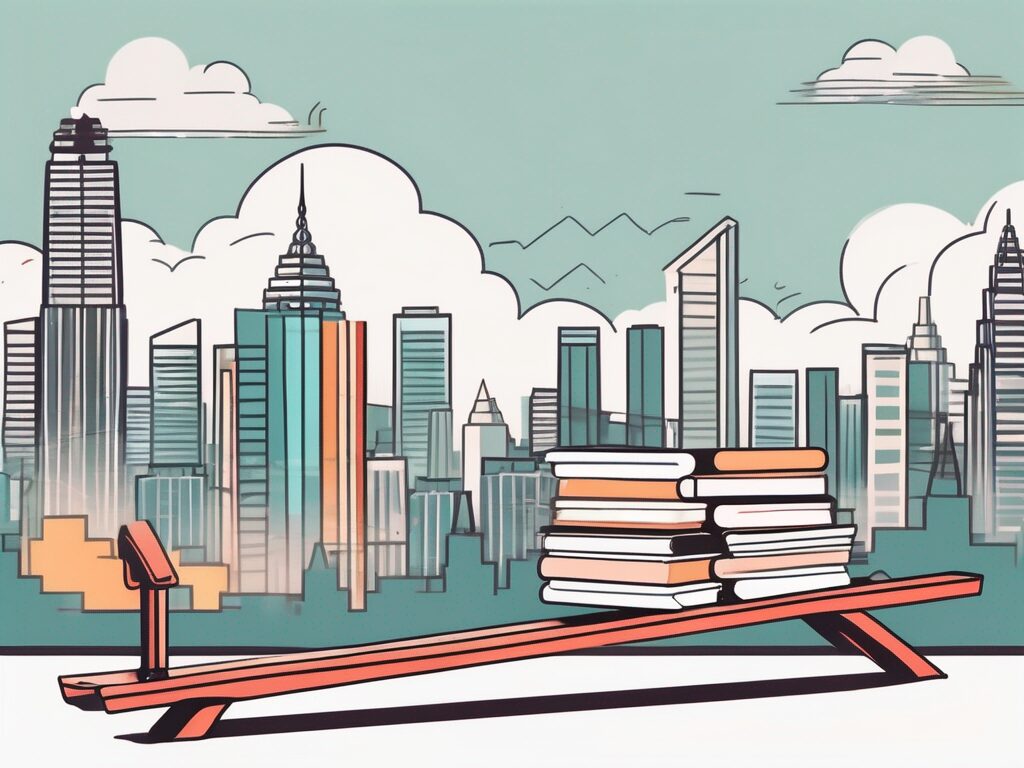Bangkok, the bustling capital of Thailand, is a city of contrasts. From the gleaming skyscrapers and modern shopping malls to the traditional street markets and ancient temples, it’s a place where the old and the new coexist. However, this diversity also extends to its education system, where a stark disparity in quality and access is evident. This article will delve into the inequality that permeates Bangkok’s education system, exploring its causes, implications, and potential solutions.
The Current State of Bangkok’s Education System
Before we delve into the heart of the matter, let’s first understand the current state of Bangkok’s education system. As the capital city, Bangkok is home to some of the country’s most prestigious schools and universities. However, these institutions are not representative of the education system as a whole.
While the city boasts a high literacy rate, the quality of education varies significantly. The privileged few have access to top-notch, internationally recognised schools, while the majority are left with under-resourced public schools. This disparity is a clear manifestation of inequality.
Quality of Education
The quality of education in Bangkok is a tale of two cities. On one hand, you have private international schools offering world-class education, often following British or American curriculums. These schools have state-of-the-art facilities, highly qualified teachers, and a wide range of extracurricular activities.
On the other hand, you have public schools that are often underfunded, overcrowded, and lacking in resources. The curriculum is often outdated, and there’s a significant emphasis on rote learning rather than critical thinking. It’s akin to comparing a gourmet restaurant with a fast-food joint – both provide food, but the quality and nutritional value are worlds apart.
Access to Education
Access to education is another area where inequality is glaringly obvious. The cost of attending a private international school in Bangkok can be exorbitant, putting it out of reach for most families. Public schools, while free, often have limited spaces, and admission is based on a lottery system.
Furthermore, children from low-income families often face additional barriers to education. These can include a lack of transportation, the need to work to support their families, or simply the lack of a conducive environment for learning at home. It’s like being in a race where some participants have to run with weights on their ankles – the playing field is far from level.
The Implications of Inequality
The implications of this inequality in Bangkok’s education system are far-reaching. It not only affects the individuals who are denied a quality education, but it also has broader societal and economic impacts.
On an individual level, a poor quality education limits opportunities for further study and employment. It’s like trying to build a house with a shaky foundation – it’s bound to collapse sooner or later. On a societal level, it perpetuates the cycle of poverty and inequality, as those from disadvantaged backgrounds find it harder to break free from their circumstances.
From an economic perspective, inequality in education hampers the country’s development. A well-educated workforce is crucial for economic growth and innovation. Without it, the country risks being left behind in the global economy. It’s like trying to compete in a high-tech race with outdated equipment – you’re bound to fall behind.
Addressing the Inequality
Addressing the inequality in Bangkok’s education system is no easy task. It requires a multifaceted approach that tackles the issue from various angles.
Improving Public Education
One of the key steps is improving the quality of public education. This includes updating the curriculum to make it more relevant and engaging, reducing class sizes, and providing teachers with better training and support. It’s like renovating a dilapidated house – it requires a lot of work, but the end result is worth it.
Making Education More Accessible
Another crucial step is making education more accessible. This could involve providing financial aid for low-income families, improving transportation to and from schools, and offering after-school support for students who need it. It’s like building bridges to cross a river – it makes the journey easier for everyone.
Engaging the Community
Finally, engaging the community is vital. Parents, local businesses, and community organisations all have a role to play in supporting education. This could involve volunteering time, donating resources, or simply advocating for better education policies. It’s like a community coming together to clean up a park – everyone benefits from the effort.
In conclusion, while the inequality in Bangkok’s education system is a complex issue, it’s not insurmountable. With concerted effort and a commitment to change, it’s possible to create a more equitable education system that benefits all students, regardless of their background. After all, education is not a privilege for the few, but a right for all.
Empower Educators to Bridge the Gap in Bangkok’s Education System
As we strive for a more equitable education landscape in Bangkok, the role of qualified and well-trained educators becomes increasingly crucial. IPGCE is dedicated to empowering teachers with the International Postgraduate Certificate in Education, a transformative program that not only enhances qualifications but also fosters career advancement and connects educators to a global network. By joining the UK’s #1 Teacher Training Course, you can be part of the change that addresses educational inequality, enriches your professional development, and opens doors to international opportunities. Take the first step towards making a difference in Bangkok’s education system and Join the UK’s #1 Teacher Training Course today.

